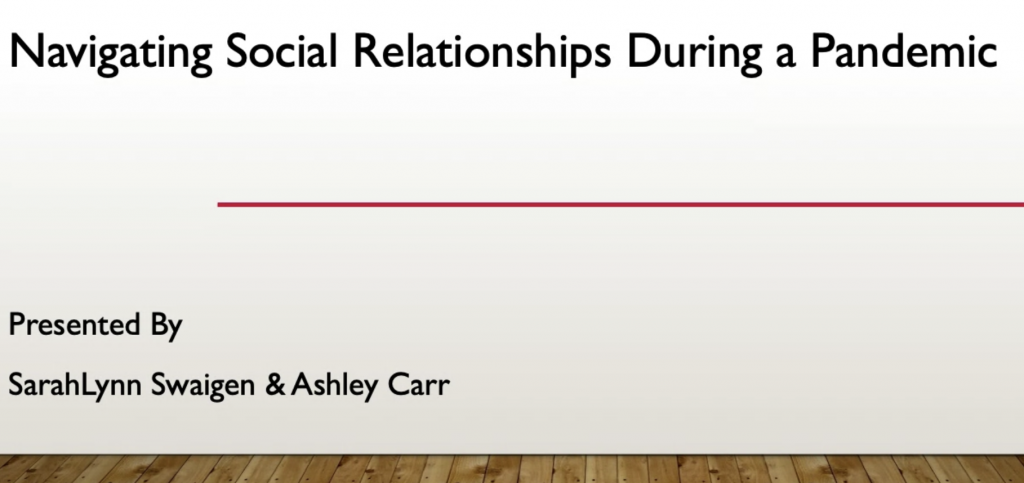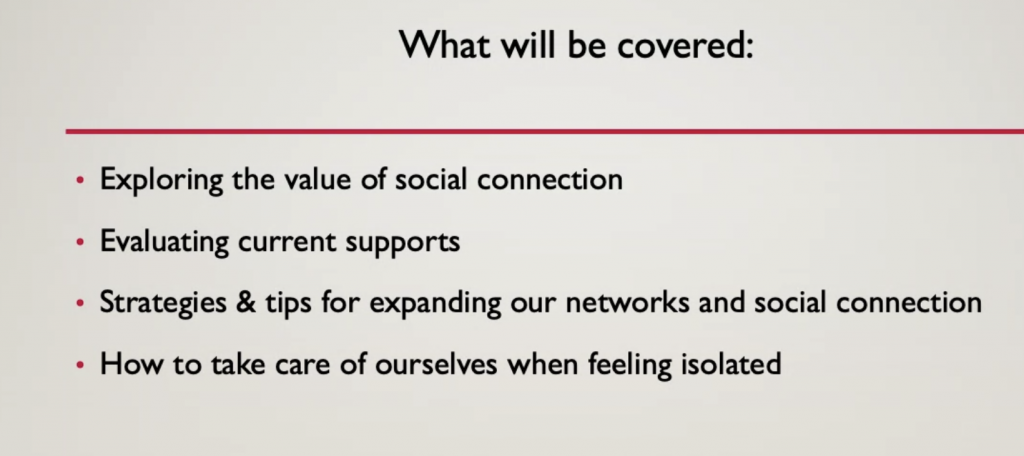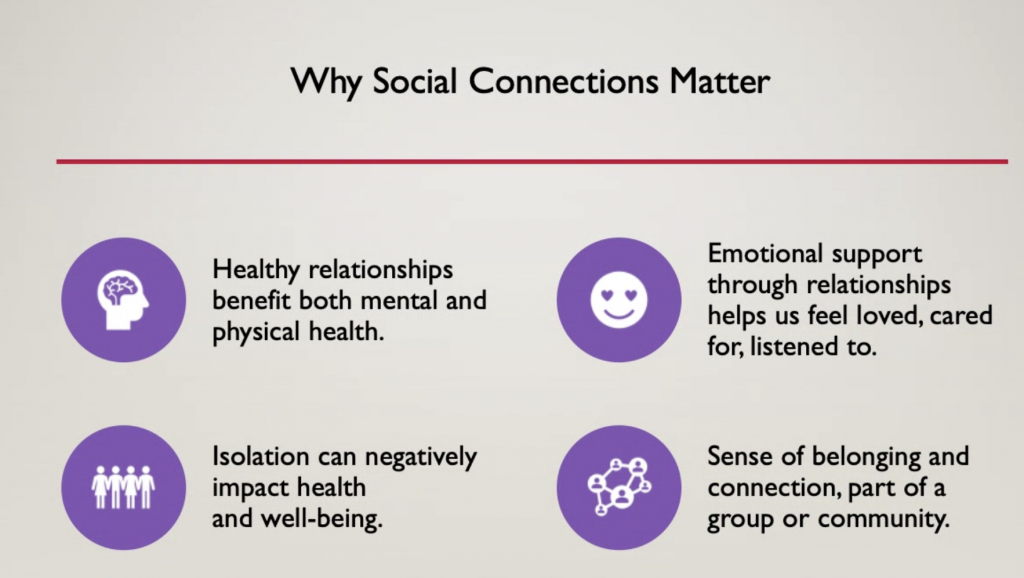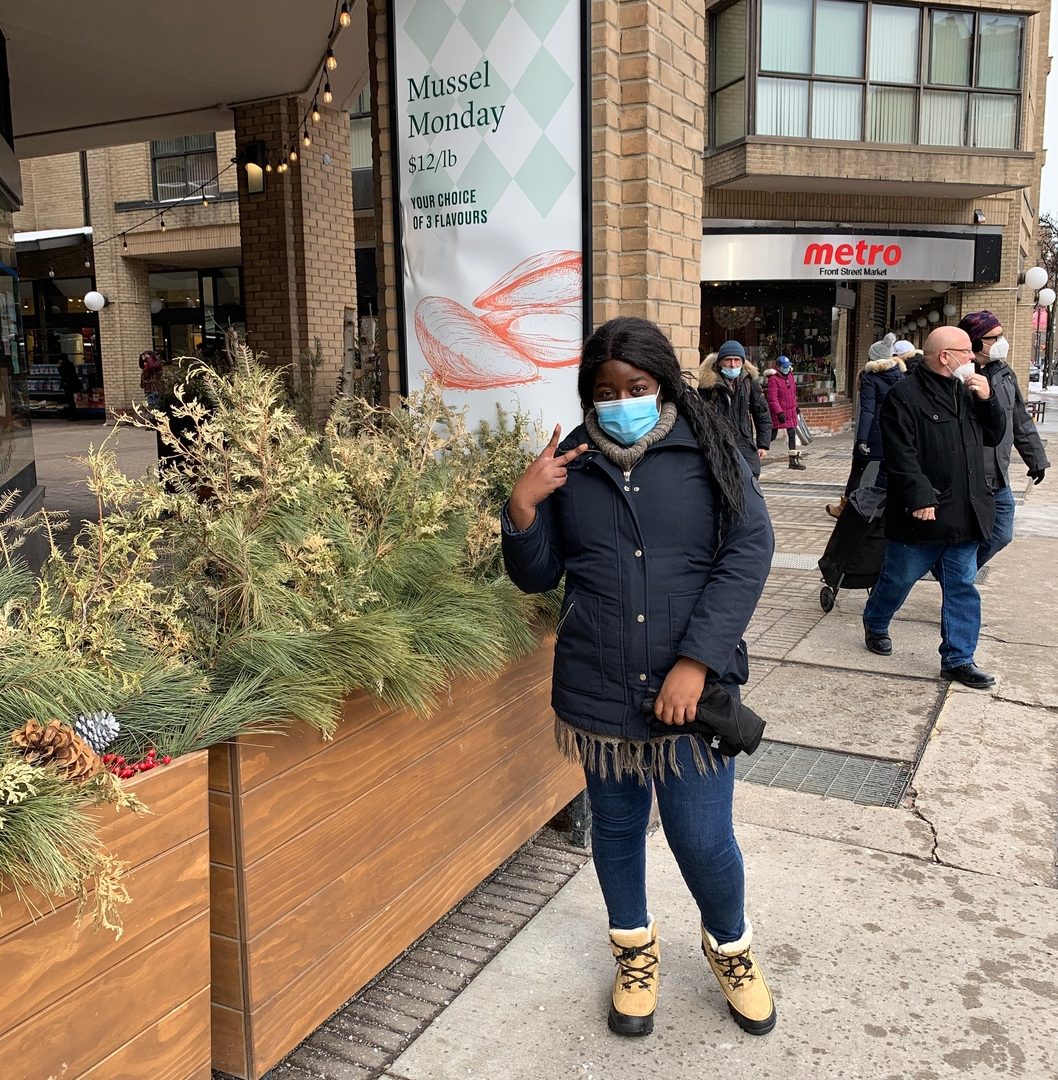According to an Angus Reid Poll, COVID-19 has led to an increase in mental health struggles, spurred on by lack of social interaction. Before the pandemic, up to 55% of Canadians reported a good social life. Sadly, the number has lowered to 33%.
This issue isn't just prevalent among older generations, but it's actually having adverse effects on the younger population. While university students could rely on in-person classes and activities to bring much-needed social interaction, now, many events have become entirely virtual.
Fortunately, there are still ways to connect during a pandemic. Recently, the U of T Health and Wellness Program held an event with speakers: SaraLynn Swaigen and Ashley Carr. I had the opportunity to attend this meeting and learn not only about the hardships of navigating social connections during COVID-19, but also about the joys of having and creating social relationships during this difficult time.

Here are some of the tips I discovered while attending this seminar:
1. Reach Out To People From Your Outer Circle More
I've actually found myself getting closer with friends from other regions of Canada and other countries, due to the increase in Zoom calls. Most of my friend's schedules have become drastically limited and many of us have more time on our hands.
While it's human instinct to reach out more to the people you interact with regularly, I've also noticed the positive impact that maintaining contact with friends from my outer circle. My outer circle consists of people I'm not necessarily super close with, or people who I would call acquaintances and yet, reaching out to these people has greatly improved my sense of connection, belonging and general satisfaction.
While I'm no longer sitting in classes and connecting with classmates or colleagues at work, I'm still making sure to build my circle by connecting with people I may have fallen out of contact with, or with whom I no longer speak regularly.

2. Understand The Importance of Social Connection (And Put Time/Effort Into It)
At various points in my life, I've identified as both an introvert and an extrovert. However, having been on both sides of the spectrum, I believe that our culture actually normalizes problematic behaviours and labels them as "introversion". For example, withdrawing consistently from or avoiding friends, family and peers is not advisable, nor is it great for your mental health. One of the biggest predictors of poor mental health is lack of meaningful social interaction and connection. We're living in a loneliness epidemic that existed long before COVID-19. As a result, it's important to educate ourselves on the importance of social connections and to be honest about the positive impact that it has on our lifes.
While it's normal to take time for yourself, we must also acknowledge the truth: human beings need other human beings. We need each other, and we thrive off of mutual respect, trust, love and empathy.


0 comments on “How To Make Social Connections During A Pandemic”